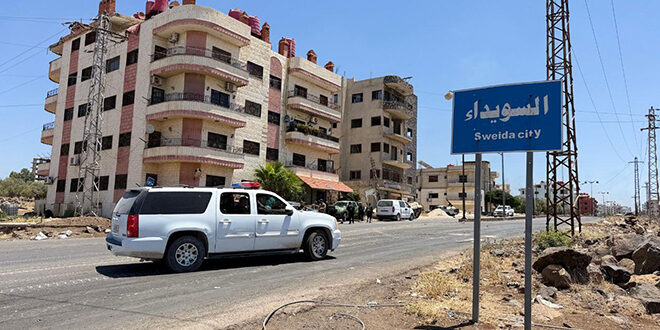Reuters: Syrian Government Misjudged Israel's Reaction to Deployment of Forces in the South

Following a ceasefire agreement between Damascus and Suwayda, Reuters agency revealed a surprise about the operation's details and the "misunderstanding" expressed by the US envoy to Syria, Tom Barak, as well as reiterated by the US State Department in its comment on the violence that erupted about a week ago in the southern province.
Eight informed sources told Reuters today that the Syrian government misread Israel's response to the deployment of its forces in the south of the country last week, emboldened by American messages saying that Syria must be governed as a central state.
The sources mentioned that Israel carried out strikes on Syrian forces and Damascus on Wednesday, a move that surprised the Syrian leadership, after government forces were accused of killing dozens of people in the Druze-majority city of Suwayda.
According to sources including Syrian political and military officials, two diplomats, and regional security sources, Damascus believed it had received a green light from the United States and Israel to send its forces south despite Israeli warnings for months not to do so.
The sources said this understanding was based on public comments, especially from the US Special Envoy to Syria, Thomas Barak, as well as on high-level security talks with Israel.
Barak had called for central administration of Syria as a "unified state" without autonomous regions.
A spokesperson for the US State Department declined to comment on private diplomatic discussions but said the United States supports the unity of Syrian territory.
The spokesperson said, "The Syrian state is obligated to protect all Syrians, including minorities," and urged the Syrian government to hold perpetrators of violence accountable.
A senior official at the Syrian Foreign Ministry denied that Barak's statements influenced the decision to deploy forces, which was made based on purely national considerations, aiming to stop bloodshed, protect civilians, and prevent the escalation of civil war.
Damascus sent troops and tanks to the Suwayda province on Monday to halt fighting between tribes and armed factions within the Druze community.
Syrian sources reported that the forces entering the city came under fire from armed Druze groups.
Two sources explained that the subsequent violence, attributed to Syrian forces including field executions and humiliation of Druze civilians, led to Israeli airstrikes on Syrian security forces and the Ministry of Defense in Damascus and around the presidential palace.
Israeli Prime Minister Benjamin Netanyahu stated that Israel intervened to prevent Syrian forces from entering southern Syria, an area Israel publicly stated must be demilitarized and to uphold its long-term commitment to protecting the Druze.
Syrian President Ahmed Al-Shar'a pledged to hold those responsible for violations against the Druze accountable, blaming "lawless groups" seeking to stoke tensions for any crimes against civilians, without mentioning whether government forces were involved.
The United States and others quickly intervened to secure a ceasefire by Wednesday evening.
US Secretary of State Mike Pompeo described the escalation as a "misunderstanding" between Israel and Syria.
A Syrian source and a Western source familiar with the matter said that Damascus believed that talks with Israel held days ago in Baku resulted in an understanding to deploy forces in southern Syria to bring Suwayda under government control.
Israel confirmed yesterday that it agreed to allow limited entry of Syrian forces into Suwayda in the next two days.
Shortly after, Syria announced it would deploy a force dedicated to ending the sectarian clashes that had continued until Saturday morning.